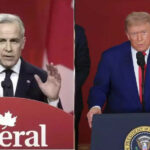Unlock the Editor’s Digest for free
Roula Khalaf, Editor of the FT, selects her favourite stories in this weekly newsletter.
UK Prime Minister Sir Keir Starmer has warned that the autumn Budget is “going to be painful”, in his strongest hint yet that the Labour government will raise taxes in October.
In a speech in Downing Street on Tuesday, Starmer said he would have to make “big asks” of the public, particularly the wealthy, in his administration’s first fiscal event.
“There’s a budget coming in October and it’s going to be painful,” he said.
“We have no other choice, given the situation we’re in,” he added, referring to what Labour has characterised as a £22bn “black hole” left by the Conservatives in the public finances.
Starmer is betting that the public will blame the former Conservative government for any tax rises and that such increases will not impede his administration’s push for higher growth.
Labelling growth as his government’s priority, he warned that the inheritance from his predecessor Rishi Sunak was “worse than we ever imagined”.
Labour has ruled out raising income tax, national insurance and VAT, which together account for most government income.
He did not elaborate on which taxes could be raised during the autumn Budget.
Last month, Chancellor Rachel Reeves warned the UK to expect tax rises in October, telling The News Agents podcast: “I think that we will have to increase taxes in the Budget.”
Sharon Graham, general secretary of the UK’s biggest trade union Unite, hit back at Starmer’s “bleak vision of Britain” and insisted it was “time to see the change that Labour promised”. She called for a wealth tax on the super-rich and a tax on excess profits.
The Conservatives accused the prime minister of paving the way for an “incoming tax raid”.
Laura Trott, shadow Treasury chief secretary, said Reeves would levy tax rises to “pay for her expensive choices and above-inflation pay rises demanded by her union paymasters” rather than the inheritance left by Sunak.
On Tuesday, Starmer also defended his decision to accept the recommendation of independent pay review bodies and hand public sector workers a pay increase of 5 to 6 per cent.
“Simply allowing national strikes to go on and on and on and not resolving them was costing the country a fortune,” he said.
He added that he was scrapping winter fuel payments for millions of pensioners reluctantly, saying that “we have to fix the NHS, our homes, our schools”.
The prime minister said the Downing Street rose garden — the site of lockdown parties during the pandemic — had become a symbol of rot under the Tories.
The summer riots had also revealed a “deeply unhealthy society” riven by “cracks in our foundation”, Starmer said.
Sir Ed Davey, the Lib Dem leader, agreed that the Tories had left a “toxic legacy” and called for “bold and ambitious action” from Labour “to fix this mess”.
Starmer also responded on Tuesday to claims of cronyism that have dogged his government over the past fortnight.
Referring to reporting about the appointment of donors to senior civil service positions, he said that “most of these allegations are coming from the very people who dragged our country down in the first place”.
Starmer said he was aware of “how big a task” it would be to get the country back on track. “That’s why we’re getting people into the best jobs in the first place,” he said, adding that he was determined to restore integrity to government.
The prime minister said he still intended to establish a new ethics and integrity commission with its own independent chair, although he was unable to say when it would be launched.





